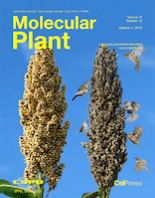
Molecular Plant
Scope & Guideline
Pioneering discoveries at the intersection of biology and agriculture.
Introduction
Aims and Scopes
- Molecular Mechanisms of Plant Growth and Development:
The journal focuses on understanding the molecular and genetic bases of plant growth and developmental processes, including hormone signaling, gene regulation, and cellular differentiation. - Plant-Microbe Interactions:
Research on the interactions between plants and microbes, including pathogenic and beneficial relationships, is a core area, highlighting the molecular mechanisms through which plants defend against pathogens and engage in symbiosis. - Stress Responses and Adaptation:
Studies on how plants respond to abiotic and biotic stressors, including drought, salinity, and disease, are prominent, exploring the molecular pathways that confer resilience and adaptability. - Genomics and Biotechnology:
The journal promotes research utilizing genomic technologies, including CRISPR and other gene-editing techniques, to enhance crop traits and improve agricultural practices. - Plant Metabolism and Secondary Metabolites:
Research on plant metabolic pathways, including the biosynthesis of specialized metabolites and their roles in plant defense and interaction with the environment, is extensively covered. - Evolutionary and Developmental Biology:
The journal also delves into the evolutionary aspects of plant biology, addressing how genetic and epigenetic changes contribute to plant diversity and adaptation.
Trending and Emerging
- CRISPR and Genome Editing Technologies:
There is a marked increase in studies utilizing CRISPR and other advanced genome editing technologies to enhance crop traits, reflecting a growing interest in precision breeding. - Omics Approaches:
Emerging themes in multi-omics approaches, including genomics, transcriptomics, proteomics, and metabolomics, are trending, showcasing the integration of various biological data to understand plant systems comprehensively. - Plant Immunity and Defense Mechanisms:
Research focusing on the molecular mechanisms of plant immunity and defense is gaining traction, driven by the need to develop crops resistant to pests and diseases. - Climate Resilience and Sustainable Agriculture:
Studies addressing the adaptation of plants to climate change, focusing on resilience mechanisms and sustainable agricultural practices, are increasingly prominent. - Synthetic Biology Applications:
The application of synthetic biology in engineering plants for enhanced traits or novel functions is emerging as a significant theme, indicating a shift towards innovative biotechnological solutions. - Interdisciplinary Research:
There is a growing trend towards interdisciplinary studies that combine plant biology with fields such as computational biology, bioinformatics, and environmental science, reflecting the complexity of modern plant research.
Declining or Waning
- Traditional Breeding Techniques:
Research focusing on conventional plant breeding methods has seen a decrease as molecular and genomic approaches gain prominence, reflecting a shift towards more sophisticated biotechnological solutions. - Basic Physiological Studies:
There has been a noted decline in purely physiological studies without molecular context, as the field increasingly emphasizes molecular mechanisms and genetic underpinnings. - Basic Plant Ecology:
Research that solely focuses on ecological aspects of plant biology, without molecular or genetic integration, appears to be less frequent, suggesting a narrowing of focus towards molecular and genetic studies.
Similar Journals

Theoretical and Experimental Plant Physiology
Illuminating the Path to Sustainable AgricultureTheoretical and Experimental Plant Physiology, published by the Brazilian Society of Plant Physiology, is a leading academic journal dedicated to advancing the field of plant physiology through rigorous theoretical and empirical research. With an ISSN of 2197-0025, this journal has carved a niche within the scientific community, operating out of the prestigious Department of Plant Physiology at UNICAMP, Brazil. Since its inception in 2014, it has continuously provided a platform for high-quality research, achieving a notable impact factor that positions it in the Q2 quartile for both Agronomy and Crop Science and Plant Science categories as of 2023. Moreover, it boasts impressive Scopus rankings, with a percentile ranking of 69th in Plant Science and 68th in Agronomy. The journal embraces open-access principles, making its scholarly content accessible to researchers, professionals, and students dedicated to uncovering the complexities of plant physiology. By publishing innovative studies and critical reviews, it strives to foster a deeper understanding of plant functions and responses, thus contributing significantly to agriculture, biotechnology, and environmental sustainability.

Annual Plant Reviews Online
Empowering Knowledge in Plant SciencesAnnual Plant Reviews Online, published by WILEY, serves as a premier academic resource dedicated to the evolving field of plant sciences, including specialties in agronomy, horticulture, and food science. With an impressive Q1 ranking in Horticulture and Q2 classifications in Agronomy, Crop Science, and Plant Science, this journal reflects a high standard of scholarly contribution, evidenced by its positioning in the 75th percentile range among agricultural and biological sciences in leading Scopus rankings. Aimed at researchers, professionals, and students alike, the journal covers a broad spectrum of plant-related topics and trends, aiming to enhance the understanding of plant biology and its applications. Offering timely insights and critical reviews, Annual Plant Reviews Online connects the global community with essential knowledge, supporting advancements in sustainable practices and innovations in agriculture. Researchers and students can access its content seamlessly, contributing to ongoing discussions in plant science and fostering academic growth.
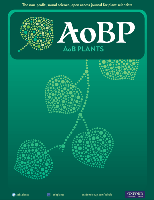
AoB Plants
Unlocking the potential of plants for future generations.AoB Plants is a distinguished open-access journal published by Oxford University Press, dedicated to advancing the field of plant science. Since its inception in 2009, this journal has played a pivotal role in disseminating high-quality research that encompasses a wide range of topics including plant biology, ecology, and biotechnology. With an impressive impact factor and a ranking in the Q1 quartile for Plant Science, AoB Plants is recognized for its innovative contributions and scholarly rigor, ranking #129 out of 516 in the Scopus Agricultural and Biological Sciences category, placing it in the 75th percentile among its peers. By promoting open-access availability of research findings, the journal empowers researchers and practitioners alike, facilitating greater collaboration and knowledge sharing in the global scientific community. Situated in the heart of the United Kingdom, AoB Plants continues its commitment to providing a platform for pioneering research and developments in plant science, thus fostering a deeper understanding of the crucial roles that plants play in our ecosystems and economies.
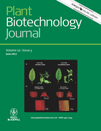
PLANT BIOTECHNOLOGY JOURNAL
Advancing sustainable solutions through plant innovation.Plant Biotechnology Journal, published by Wiley, is a premier open-access platform dedicated to advancing the field of plant biotechnology. Since its inception in 2003, this journal has played a pivotal role in disseminating high-quality research that enhances our understanding of plant genomics, biochemistry, and molecular biology. With an impressive impact factor and a prominent position in Q1 quartiles across Agronomy, Crop Science, Biotechnology, and Plant Science, it ranks among the top journals globally, reflecting its significant influence in the agricultural and biological sciences. Researchers and professionals can access cutting-edge studies and reviews that facilitate innovation in sustainable crop production and biotechnology applications. The journal's transition to an open access model since 2016 has further amplified its reach, ensuring that vital research is available to a global audience, promoting collaboration and knowledge sharing within the scientific community.
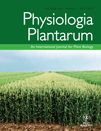
PHYSIOLOGIA PLANTARUM
Pioneering Insights in Plant Biology Since 1948PHYSIOLOGIA PLANTARUM, published by WILEY, is a prestigious journal in the fields of plant science, physiology, and genetics, known for its impactful contributions since its inception in 1948. With an impressive impact factor and a consistent ranking in the Q1 and Q2 quartiles, it stands out in critical disciplines such as cell biology and biochemistry, ranking #24 in Plant Science with a remarkable 95th percentile standing. This journal primarily serves researchers and professionals committed to advancing the understanding of plant functions, responses, and their molecular mechanisms. Its broad scope allows for a diverse array of studies, ensuring that groundbreaking research is accessible to the global scientific community. Although it does not offer Open Access, PHYSIOLOGIA PLANTARUM remains a vital resource for scholars looking to stay at the forefront of plant biology and related fields.
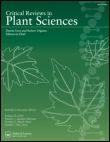
CRITICAL REVIEWS IN PLANT SCIENCES
Transforming understanding in agricultural sciences.CRITICAL REVIEWS IN PLANT SCIENCES, published by Taylor & Francis Inc, is a prestigious journal that has been advancing the field of plant science since its inception in 1983. With an impressive impact factor and consistently ranked in the top quartile (Q1) of its category, this journal is a leading platform for the dissemination of peer-reviewed research that spans the breadth of plant biology, ecology, and agricultural applications. Housed in the United Kingdom, it serves an international readership, making significant contributions to our understanding of plant systems and their environmental interactions. This journal is highly regarded within the Scopus rankings, holding an impressive position of 18 out of 516 journals in the Agriculture and Biological Sciences category, placing it in the 96th percentile. Although not currently open access, the journal provides valuable insights and critical reviews that are essential for researchers, professionals, and students striving to further their knowledge and bolster their own research in plant sciences.

Molecular Horticulture
Exploring the Intersection of Science and SustainabilityMolecular Horticulture is a prestigious journal published by SpringerNature, dedicated to advancing knowledge in the fields of Agronomy, Crop Science, Horticulture, and Molecular Biology. Based in the United Kingdom, this journal, with ISSN 2730-9401, is recognized for its high-quality, peer-reviewed research and has rapidly established itself within the academic community, achieving a remarkable Q1 ranking across its relevant categories as of 2023. With a strong focus on innovative research that explores the intersection of molecular biology and horticultural science, Molecular Horticulture provides valuable insights that are essential for researchers and professionals aiming to enhance crop production and sustainability practices. As part of the Scopus database, the journal ranks impressively within its fields, holding notable positions such as Rank #7 in Horticulture and Rank #42 in Agronomy and Crop Science. While currently published through traditional access models, the journal remains accessible to a wide audience of scientists, educators, and students eager to stay informed on the latest discoveries and trends in plant science.
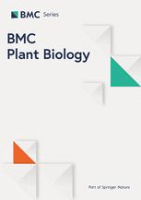
BMC PLANT BIOLOGY
Nurturing Innovation in Plant ResearchBMC Plant Biology, published by BMC, is a leading open-access journal devoted to the field of plant science, presenting high-quality research that contributes significantly to the understanding of plant biology. Since its inception in 2001, the journal has established itself as a prominent platform for disseminating innovative research, achieving a commendable Q1 ranking in Plant Science within the 2023 Scopus quartiles, and ranking #39 out of 516 journals in the Agricultural and Biological Sciences category, indicating its substantial impact with a 92nd percentile ranking. Researchers, professionals, and students engaged in the study of plant biology will find a wealth of knowledge in its comprehensive scope, covering critical areas such as molecular biology, genetics, ecology, and biotechnology. The journal's commitment to open access ensures that cutting-edge research is available to a global audience, fostering collaboration and advancement in the field. BMC Plant Biology continues to inspire and facilitate growth in plant-related studies, making it an invaluable resource for anyone interested in the vibrant and essential domain of plant science.
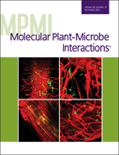
MOLECULAR PLANT-MICROBE INTERACTIONS
Advancing Knowledge in Agronomy and Plant PhysiologyMOLECULAR PLANT-MICROBE INTERACTIONS is a premier journal dedicated to the exploration of the complex interactions between plants and microbes, providing a vital platform for researchers in agronomy, crop science, and plant physiology. Published by the American Phytopathological Society, this journal has been serving the academic community since 1988 and continues to be at the forefront of advances in molecular biology and plant-microbe symbiosis, with a notable impact factor reflecting its esteemed position in the field. As a Q1 journal in both Agronomy and Crop Science and Medicine (miscellaneous), and holding a significant ranking in the Scopus categories, it is recognized for publishing high-quality, peer-reviewed research that is essential for understanding and improving agricultural practices. Although it is not an open-access journal, it provides critical insights that facilitate collaborative efforts among researchers, professionals, and students alike. The journal’s objectives focus on enhancing our understanding of plant health, disease resistance, and ecological sustainability, making it a crucial resource for anyone interested in the intricate research landscape of plant-microbe dynamics.

PHYSIOLOGY AND MOLECULAR BIOLOGY OF PLANTS
Unveiling the Secrets of Plant ProcessesPHYSIOLOGY AND MOLECULAR BIOLOGY OF PLANTS, published by SPRINGER, is a vital journal focused on the advancing field of plant science. Featuring research that spans physiology, molecular biology, and their applications in agriculture, this journal is pivotal for academics, professionals, and students keen on understanding plant processes and enhancing crop production. With an ISSN of 0971-5894 and an E-ISSN of 0974-0430, this journal is recognized for its scholarly significance, ranking in the Q3 category in Molecular Biology, Q2 in Physiology, and Q1 in Plant Science as of 2023. The journal maintains a strong position in the Scopus rankings, with notable percentile rankings including 87th in Plant Science. Established in 2000, this publication aims to foster the dissemination of cutting-edge research by providing a platform for open discussion and knowledge sharing about plant physiology and molecular mechanisms. While it does not currently offer open access options, its comprehensive studies and reviews serve as an essential resource for enhancing our understanding of plant biology.